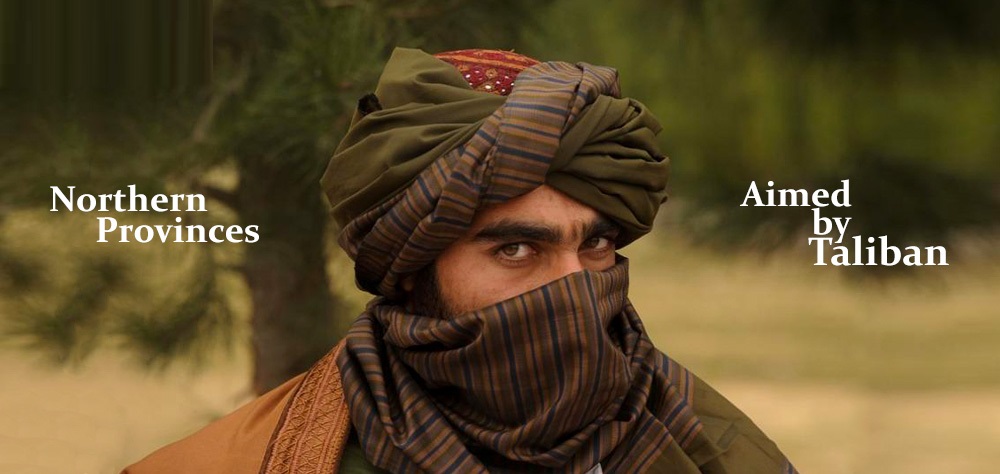AhlulBayt News Agency - The local officials in northern Afghanistan have claimed that Taliban intended making new advances and capturing some of the country’s districts. Just unlike before which it carried out harassing attacks and led an erosive war, the militant group now is focusing on gaining territory and consolidating its place in Afghanistan.
Meanwhile, Reza Rezaei, the commander of Afghan National Army's 209th Brigade, stationed in the north of the country, in a speech has said that since May 31 there took place 95 heavy clashes in Ghormach village in Badghis province in northwest of the country. General Rezaei has continued that several militants were killed during the fighting, as there had been many fatalities among the security forces.
The districts of Qheysar, Dawlatabad and Khwaja Sabz Posh were also subjected to assaults of Taliban, and the Andkhoy-Maimana Highway is reportedly closed down now.
Furthermore, a security post in Khawaja Sabz Posh District, which is tasked with protection of two villages in the district, was brought under attacks by Taliban militants.
The reports say that 18 villages in Qaysar District are now under the control of Taliban fighters. The group has also built up presence in Pashtun Kot District.
Taher Rahmani, the head of provincial council of Faryab province has confirmed the reports presented by General Rezaei and maintained that heavy clashes were under way in Pashtun Kot District and the militants were drawing close to Maimana the capital of Faryab province.
Additionally, Javid Badr, the spokesman for Faryab province's governor, has noted that there were clashes near Maimana and the city could fall to Taliban militants should the government did not send reinforcements to it.
The militants also blocked a highway from Maimana to Sheberghan in Jawzjan province.
A majority of Taliban militants around Faryab province are Turkmens, Uzbeks and Tajiks coming from the Central Asia.
According to the Afghan authorities, the militants have under their control areas close to Turkmenistan borders.
The security problems in northwestern Afghanistan continue to exist despite the frequent visits made to the area by Abdul Rashid Dostum, the former army general and the current aide to the Afghan President Ashraf Ghani.
General Dostum has led at least five offensives against Taliban in northwest of the country since summer 2015. His forces pushed the militants back in a variety of areas. However, Taliban reactivated movements in the region after General Dostum moved out.
The fact is that several months after Taliban’s operation in Kunduz which led to recapture of the city— though it failed to hold the city for a long time and very soon the security forces launched an assault and recaptured it— there are reports maintaining that there are thousands of militants camping in northern Afghanistan.
Confirming the reports of Faryab local officials on militants' presence in the north, some sources have put the number of the extremist fighters at 10,000 and even more.
The significant issue is that the security of these areas is seriously at stake. Although during the past three years the northern provinces of Afghanistan enjoyed calm and peace, they all of a sudden changed to safe havens for terrorist groups and radical movements. Actually, the security in these provinces is witnessing a growing deterioration.
The stable security of northern provinces is considered favorable for Central Asian countries which are afraid of instability of Afghanistan. But in this year all of eight provinces of Badakhshan, Takhar, Kunduz, Samangan, Jawzjan, Faryab, Badghis and even Balkh which share borders with Central Asian countries have observed vicious clashes. In some other areas the battle scenes are seeing an expansion.
Anyway, the wide-ranging violence in southern borders of Central Asia have been under way for nearly two decades. The fear of expansion of terrorism is main source of concern of the countries of the region, especially that ISIS terrorist group is booming in the region.
The security situation of Afghanistan and the battlefield report indicate a progress of Taliban in northern regions of the country. Furthermore, the killing of Mullah Akhtar Mansour, the leader of Taliban, which would result in complicated peace process, without doubt would heighten the insecurity in the country.
/129
source : Al Waqt
Wednesday
15 June 2016
7:57:21 AM
760336

The local officials in northern Afghanistan have claimed that Taliban intended making new advances and capturing some of the country’s districts.
